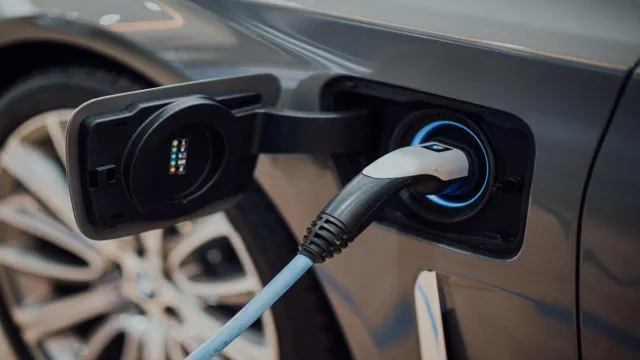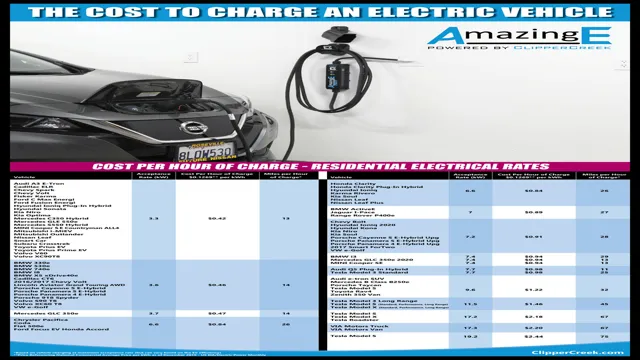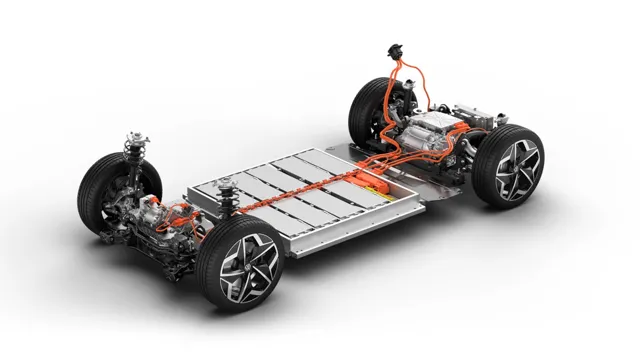Hot or Cold? The Impact of Temperature on Electric Car Battery Life!
Electric cars are gaining popularity as people strive to reduce their carbon footprint and cut down on fuel costs. However, their batteries pose a problem, especially when exposed to extreme temperatures. The effect of temperature on electric car batteries is a crucial factor that determines their lifespan and performance, making it an essential aspect to consider before purchasing an electric vehicle.
Temperature can drastically affect the performance of an EV battery. High temperatures accelerate the rate of chemical reactions inside the battery, leading to a shorter lifespan. On the other hand, low temperatures reduce the battery’s ability to produce energy, making it challenging to start the car during cold winters.
Moreover, temperature affects the charging rate of EV batteries, with high temperatures reducing the battery’s ability to accept a charge. This not only slows down the charging process but also reduces the battery’s overall efficiency. Therefore, it is crucial to be mindful of the temperature conditions in which electric cars are used and stored to ensure their batteries’ optimal performance and longevity.
In-depth research and proper maintenance are necessary to determine the ideal temperature conditions for an EV battery, further optimizing its performance. In conclusion, understanding the effect of temperature on electric car batteries is essential for anyone looking to purchase an electric vehicle. Investing in proper maintenance and storage can help prolong the lifespan and performance of the battery, ensuring a smooth and efficient driving experience for years to come.
Introduction
Have you ever wondered if the temperature affects the battery life of your electric car? Well, the answer is yes, it does. Extreme temperatures can have a significant impact on the performance of an electric car’s battery. When it’s too hot, the battery can lose its capacity to store energy, leading to shorter distances driven on a single charge.
On the other hand, when it’s too cold, the battery’s chemical reactions slow down, reducing its power output, which also results in a shorter range. So, it is essential to keep your electric car’s battery at the optimal operating temperature, which is typically between 20-25°C. Additionally, it’s worth noting that constantly exposing your battery to extreme temperatures can also reduce its overall lifespan, leading to the need for replacement sooner than expected.
To preserve your electric car battery’s lifespan, you should park in a shaded area when possible, avoid leaving it in extreme temperatures for long periods, and use battery preconditioning functions to preheat or cool the battery before using it in extreme temperatures.
How electric car batteries work
Electric Car Batteries Electric car batteries are a crucial component of electric vehicles, serving as the source of power that drives the motor and propels the car forward. The principle behind electric car batteries is relatively simple: they store electrical energy in chemical form, which is then converted back into electrical energy when the car is in use. This is achieved through the use of electrochemical cells, which are comprised of an anode, a cathode, and an electrolyte.
When electricity flows through the cell, it causes a chemical reaction in the electrolyte that generates a flow of electrons between the anode and cathode. This flow of electrons is what powers the motor and allows the car to move. As electric cars become more popular, advances in battery technology are key to improving their range and reducing their cost.
For this reason, electric car batteries continue to be an area of intense research and development, with many promising new technologies on the horizon.

Why temperature is important for battery life
When it comes to battery life, temperature plays a significant role in determining the lifespan of a battery. Temperature affects every aspect of a battery’s performance, from charging to discharging and overall performance. Temperature should be one of the top considerations of any battery user, as it can impact the life of a battery, causing it to fail early or not to charge as well as it could.
The optimal temperature range for a battery is usually between 20°C and 25°C, and anything outside of this range can lead to problems. Therefore, battery users need to pay attention to temperature when choosing devices and storage areas for their batteries. By doing so, they can optimize battery life and ensure they get the most out of their batteries.
Impact of High Temperature on Battery Life
Temperature can have a significant impact on the life of an electric car battery. Hot temperatures, in particular, can be particularly damaging to the battery’s composition, leading to a reduced lifespan and a decrease in overall performance. In fact, for every increase of 10 degrees Celsius in temperature, the battery’s life expectancy can be cut in half.
This is because high temperatures can cause the battery to degrade at a faster rate, leading to a reduced capacity and a less reliable charge. Additionally, higher temperatures can also cause the battery to become more volatile, increasing the risk of overheating and potential safety hazards. To combat these issues, many electric car manufacturers have implemented cooling systems to help regulate the battery’s temperature, ensuring optimal performance and longevity.
How heat affects batteries
When it comes to batteries, high temperature can have a significant impact on their overall lifespan. Heat is one of the primary factors that can cause a battery to degrade more quickly, which is why it’s important to store and use your batteries in the right conditions. For example, leaving your phone in a hot car or exposing your laptop to direct sunlight can cause the battery to overheat, which can reduce its capacity and cause it to wear out more quickly over time.
In fact, research has shown that exposing a battery to temperatures above 30°C can cause a significant decrease in its overall lifespan. To keep your batteries in good condition, try to store them in a cool, dry place and avoid exposing them to extreme heat or cold for extended periods of time. By taking these simple steps, you can help to ensure that your batteries last as long as possible and continue to perform at their best.
Examples of high temperature impact on battery life
The impact of high temperatures on battery life can be significant. When batteries are exposed to high heat, it can cause them to degrade faster, reducing their lifespan and overall performance. For example, a study conducted by Battery University found that at a temperature of 40°C, the capacity of a lithium-ion battery can be reduced by up to 15%.
As the temperature increases, so does the degradation rate. At 60°C, the same battery can lose up to 25% of its capacity, and at 85°C, it can lose up to 50%. These results highlight the importance of keeping batteries cool, especially in devices that generate heat such as smartphones, laptops, and electric cars.
To ensure the longevity of your battery, it is recommended to store it in a cool, dry place, avoid exposing it to direct sunlight, and not let it overheat. By taking these precautions, you can help extend the life of your battery and get the most out of your device.
Impact of Low Temperature on Battery Life
One of the most significant factors that affect the lifespan of an electric car battery is temperature. Extreme low temperatures, in particular, can significantly reduce the performance and longevity of electric car batteries. Why? Because low temperatures slow down the chemical process that occurs inside the battery, making it harder for the battery to store and release energy efficiently.
This can lead to a reduction in driving range, sluggish acceleration, and even permanent damage to the battery cells over time. To mitigate the impact of low temperatures on electric car battery life, experts advise keeping the battery warm when parked, charging the battery indoors or in a garage, and avoiding driving in extremely cold weather conditions whenever possible. By following these tips, electric car owners can help prolong the lifespan of their battery and enjoy their vehicle for years to come.
How cold weather affects batteries
Cold weather can have a significant impact on the performance and lifespan of batteries. Low temperatures can reduce a battery’s ability to hold a charge, making it more difficult to start a vehicle or power a device. This is because cold weather causes the chemical reaction inside the battery to slow down, making it harder for the electrons to move through the electrolyte solution.
This results in a decrease in the battery’s capacity and an increase in its internal resistance. If a battery is already weak or worn out, cold weather can cause it to fail altogether. To prevent this, it’s important to keep batteries warm and fully charged during the winter months.
Using a battery maintainer or charger can help to prolong battery life and ensure that it’s ready to go when you need it. So, if you’re planning to venture out into chilly weather, make sure to take care of your batteries to avoid surprises!
Examples of low temperature impact on battery life
Low temperature can have a significant impact on battery life, especially for lithium-ion batteries commonly used in smartphones, laptops, and electric vehicles. At low temperatures, the chemical reactions inside the battery slow down, reducing the battery’s capacity to hold a charge and supply power. In severe cases, the battery may even stop working altogether or suffer permanent damage.
For example, if you leave your smartphone in freezing temperatures, you may notice that the battery drains much faster than usual or suddenly turns off, requiring you to warm it up before use. Similarly, electric vehicle owners may experience reduced range and performance during the winter months, as the cold weather affects the battery’s ability to deliver power. To avoid such issues, it is recommended to keep your batteries at room temperature as much as possible, avoid exposing them to extreme cold, and charge them only when the temperature is optimal to extend their lifespan.
Tips for Maintaining Battery Life in Extreme Temperatures
Electric car batteries are affected by extreme temperatures. High or low temperatures can shorten the life of an electric car battery and reduce its efficiency. Whether you live in a hot or cold climate, there are some things you can do to maintain your battery’s life.
First, avoid exposing your electric car to direct sunlight for extended periods as this may lead to battery degradation. Secondly, do not park your car in the garage when the temperature outside is below freezing point, as freezing can further shorten the battery’s life. To prevent your battery from overworking during hot temperatures, you can also pre-condition your car before driving it.
Lastly, it’s important to ensure that your electric car battery is charged as often as possible, whether your car is in use or not. By following these tips, you can maintain your electric car battery’s life and improve its efficiency, saving you money in the long run.
Conclusion
In conclusion, the relationship between temperature and electric car batteries is a hot topic. Much like how extreme temperatures can affect our own energy levels and mood, they can also impact the performance and lifespan of electric car batteries. But fear not, as clever advancements in technology and battery management systems are being developed to mitigate these effects.
So, whether you’re in scorching desert heat or freezing Arctic chill, electric cars are proving to be a cool way to travel sustainably.”
FAQs
How does temperature affect electric car battery life?
Extreme temperatures, both hot and cold, can adversely affect the performance and longevity of electric car batteries. High temperatures can cause the battery to degrade faster, while cold temperatures can reduce battery capacity and range.
What is the optimal temperature range for electric car batteries?
The ideal temperature range for electric car batteries is generally between 20°C to 30°C (68°F to 86°F). Operating within this range can help maximize battery life and performance.
Can battery cooling or heating systems help protect electric car batteries from temperature-related damage?
Yes, many electric cars come equipped with battery cooling or heating systems designed to regulate temperature and protect the battery. These systems can help improve the longevity and performance of the battery.
What steps can drivers take to protect their electric car batteries from extreme temperatures?
To minimize the impact of temperature on electric car batteries, drivers can park in cool or shaded areas, avoid exposing the car to extreme temperatures for extended periods, and pre-condition the car’s battery before use in extreme conditions.






